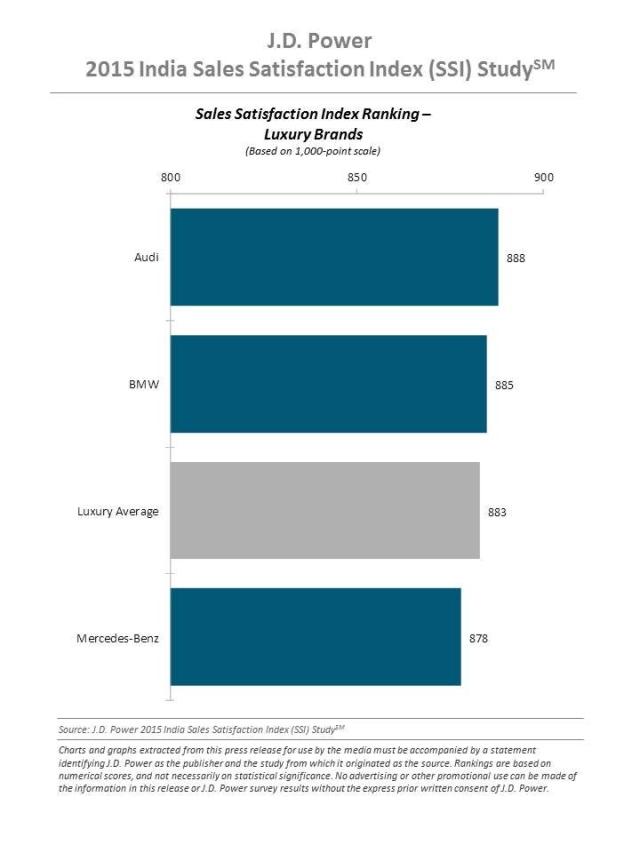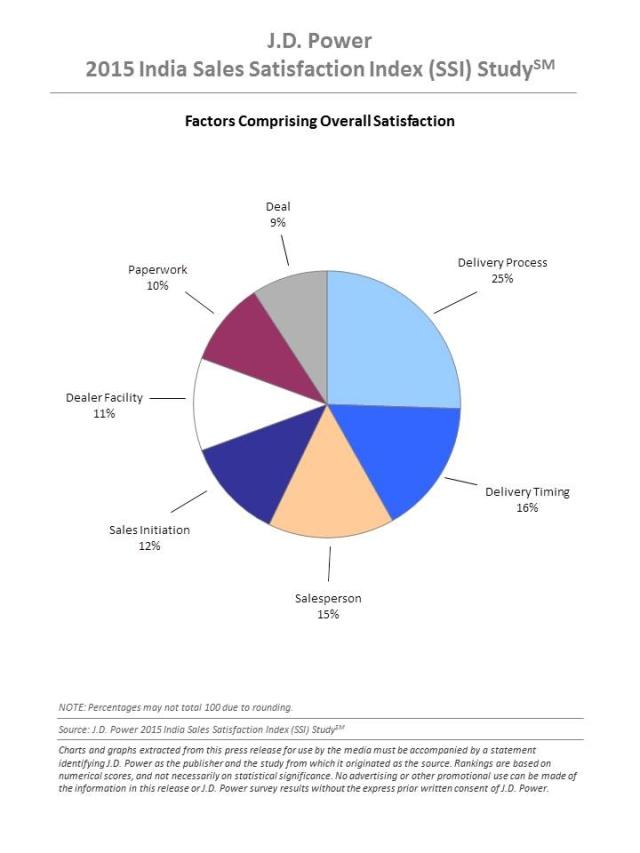Vehicle Owners in Germany Cite More Problems with Premium Vehicles than Volume Vehicles, J.D. Power Finds
Toyota Ranks Highest in Vehicle Dependability
MUNICH: 17 July 2018 — Despite identifying more problems with their premium vehicles during the first three years of ownership than owners of volume vehicles, premium vehicle owners in Germany are more likely to repurchase the same brand of vehicle, according to the J.D. Power 2018 Germany Vehicle Dependability StudySM (VDS).
The study, now in its fourth year, measures problems experienced during the past 12 months by original owners of vehicles in Germany after 1-3 years of ownership. The study examines 177 problem symptoms across eight categories: vehicle exterior; driving experience; features/controls/displays (FCD); audio/communication/entertainment/navigation (ACEN); seats; heating, ventilation and air conditioning (HVAC); vehicle interior; and engine and transmission. Overall dependability is determined by the number of problems experienced per 100 vehicles (PP100), with a lower score reflecting higher quality.
“Owners are a bit more tolerant of new-technology issues than traditional vehicle problems, and the result is a less-negative effect on satisfaction and brand loyalty,” said Josh Halliburton, Vice President and Head of European Operations at J.D. Power. “However, as new technologies become more commonplace, the tolerance for these kinds of issues will decline. Manufacturers should get in front of this and solve customer complaints early on to avoid a decline in satisfaction and loyalty.”
While they may experience more problems, premium owners tend to be more forgiving than volume owners and are more likely to purchase the same brand in the future. However, as manufacturers continue to develop new features and technology, they need to consider and address what owners perceive as issues.”
A new metric for the 2018 Germany VDS is the Net Promoter Score® (NPS),[1] which measures customers’ likelihood to recommend both their vehicle make and model on a 0-10 scale. Customers are segmented into three groups: detractor (0-6), passive (7-8) or promoter (9-10). NPS is calculated by subtracting the percentage of detractors from the percentage of promoters.
Following are some key findings of the 2018 study:
- Excessive fuel consumption causes low satisfaction: Owners who report experiencing excessive fuel consumption are the least satisfied owners in the study. Only 20% of owners citing this problem say they “definitely will” repurchase the same brand again. Owners rate any problems they experience on a severity scale of 1 to 5, with 5 being the most severe. Excessive fuel consumption is the highest-rated severity problem (4.0). The problems with the highest severity tend to be issues that are dangerous or costly to repair, both of which create stress for owners.
- Engine and transmission problems among the most severe: Seven of the 10 highest-rated problems for severity are in the engine and transmission category. While no category increases in PP100 from 2017, engine/transmission decreases by 1.5 PP100, which is the second-lowest decline in the number of problems among all categories. Engine/Transmission problems comprise 5% more of the total problems reported for volume brands than premium brands.
- Majority of owners are promoters of their vehicle brand and model: Vehicle satisfaction among owners who are promoters of their specific model is 185 points (on a 1,000-point scale) higher than among those who are detractors. While the NPS for owners of premium brands is higher than for volume brands, both are significantly affected by the total number of problems experienced. There is a steady decline in the NPS after the first problem is experienced and a very steep decline among both premium and volume owners when three or more problems are experienced.
- Brand loyalty affected by high problems and low satisfaction: Low quality scores reduce the likelihood to purchase the same brand by 39% between owners who experience no problems and those who experience three or more problems. Owners citing even one problem trend 4% below the 51% study average of owners who say they “definitely will” repurchase the same brand. When APEAL Index scores drop below 500 points, repurchase intent decreases to 7%. Brands that achieve higher satisfaction and fewer problems can reap the benefits of greater brand retention than those that do not.
The industry average for vehicle dependability is 133 PP100, an improvement from 151 PP100 in 2017. The improvement is due to problem score reductions in all eight categories, particularly in vehicle exterior and features/controls/displays.
Study Rankings
Toyota ranks highest in vehicle dependability among all brands, with a score of 101 PP100. SEAT and Volvo rank second in a tie, with 103 PP100, followed by Škoda with 104 PP100 and Hyundai with 105 PP100. Volvo is the highest-ranked premium brand.
Mercedes-Benz has two models (E-Class and CLA) that receive segment awards. Audi Q5, Ford C-MAX/Grand C-MAX, Mazda Mazda3, Opel Adam and Toyota Yaris each receive a segment award.
The 2018 Germany Vehicle Dependability Study is based on responses from 14,292 owners of vehicles first registered between February 2015 and April 2017. The study was fielded from February through April 2018.
J.D. Power is a global leader in consumer insights, advisory services and data and analytics. These capabilities enable J.D. Power to help its clients drive customer satisfaction, growth and profitability. Established in 1968, J.D. Power is headquartered in Costa Mesa, Calif., and has offices serving North/South America, Asia Pacific and Europe. J.D. Power is a portfolio company of XIO Group, a global alternative investments and private equity firm headquartered in London, and is led by its four founders: Athene Li, Joseph Pacini, Murphy Qiao and Carsten Geyer.
Additional study results are published in the AUTO TEST supplement to SPORT BILD, on newsstands on July 18, and in the August 2018 issue of AUTO TEST – Der Kaufberater, on newsstands July 25.
Media Relations Contacts
Mark Lendrich; J.D. Power; Munich, Germany; Tel: +49 (0)89-288 03 66-11; mark.lendrich@jdpa.com
Tobias Franzke; AUTO TEST; Tel: +49 (0)9122 63 13 100; tobias.franzke@autobild.de
Geno Effler; J.D. Power; Costa Mesa, Calif., USA; +1 714-621-6224; media.relations@jdpa.com
About J.D. Power and Advertising/Promotional Rules www.jdpower.com/business/about-us/press-release-info
About AUTO TEST
AUTO TEST is a member of the international AUTO BILD group published by Axel Springer. Since 2003, AUTO TEST has been the leading special interest magazine for readers who are planning to buy a new car. More than 500 cars are tested each year, with over a million kilometers driven to provide readers with detailed and objective model reviews to help them choose the best car for their money. Readers can also find tips on cutting running costs, used cars, service, finance and accessories.
[1] Net Promoter,® Net Promoter System,® Net Promoter Score,® NPS,® and the NPS-related emoticons are registered trademarks of Bain & Company, Inc., Fred Reichheld and Satmetrix Systems, Inc.

